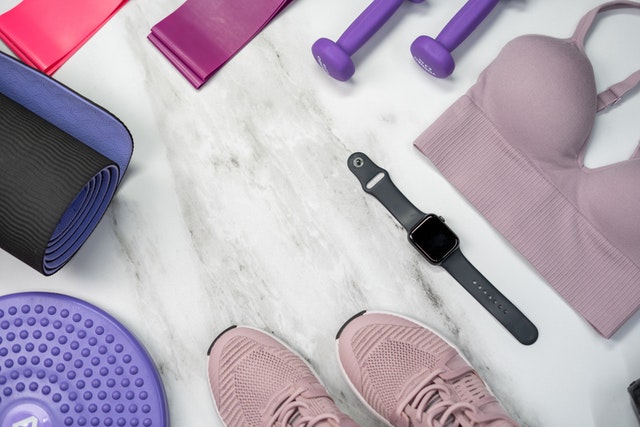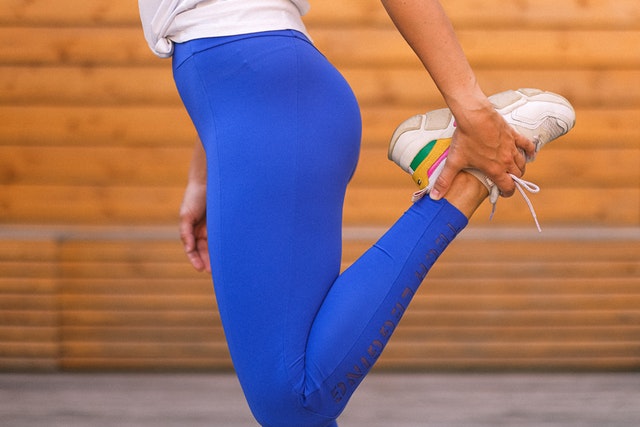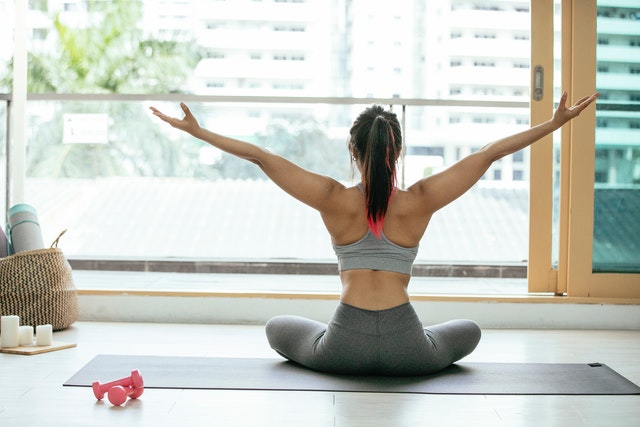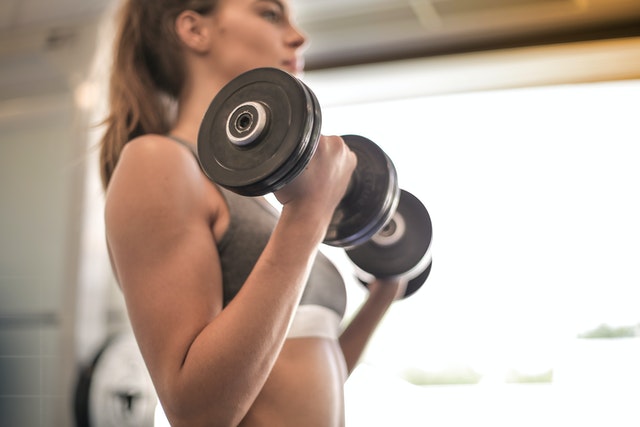Whether you are a beginner in exercise or want to start a new course, starting something new is typically challenging to implement and understand. When it comes to exercise, regular exercising is one of the most beneficial things you can do for your health. But it gets tough to keep going, especially for beginners, due to a lack of knowledge. This eventually leads to a loss of motivation in the long run. That’s why I’m here to tell you everything you need to know before you start to exercise.
But before we get into the actual application of these things, let’s talk about the fundamentals of exercises. I think we’re too used to hearing phrases like “exercises,” “workout,” and so on, but we neglect to ask ourselves simple questions like, “What exactly is exercise?“
Table of Contents
Exercise Definition and Meaning

According to the Oxford English Dictionary, the definition of “exercise” is any physical activity that results in a higher heart rate than one’s typical resting rate. It is essential to begin exercise to maintain both physical and mental wellness.
Regular physical exercise provides significant physiological and emotional advantages, whether a quick walk or a high-intensity sport such as an uphill bike ride or weight training. Regular exercise is required to prevent a wide range of diseases and other health issues.
Now that you have a better knowledge of the phrase “exercise,” you must know its benefits and why you should adopt them to enhance your general health.
Benefits of Exercise

Everyone recognizes that physical activity is good for one’s health. The issue is that many people are unaware of the full scope of the health benefits of regular exercise. When you start to exercise, you may expect to gain the following benefits:
- Lower risk of chronic disease
- Improved mood and mental health
- Balanced energy levels throughout the day and better sleep
- Slowing of the aging process
- Slower aging process
- Positive effect on the microbiome
- Boost in sex life
10 Things You Need To Know Before You Start to Exercise
I know! I know! Learning a workout routine or performing exercise is not rocket science. The issue arises from a lack of knowledge regarding sports injuries and little details that may cause complications for beginners.
You’re probably familiar with muscular soreness if you’ve ever worked out, right? These are most commonly caused by neglecting warm-up or cool down. Overuse or a vigorous, intense workout might also cause it. Don’t forget that an unhealthy diet might also cause your muscles to talk (you know what I mean :P).
#1 Choose Your Motive and Set a Goal

When was the last time you tried to start a home workout routine to lose, and it didn’t work? Honestly, this used to happen to me all the time. To begin, decide what you want to work on first. Consider your objectives if you wish to keep up with your children as they get older or if you want to be in better shape to be more energetic and productive at work. Set long-term and short-term goals based on your motivations.
The first step will be to make a strategy out of your thoughts and goals and stick to it. Once you’ve decided to start a regular fitness routine, you should develop a strategy that includes clear, measurable goals. You may accomplish this by creating a basic step-by-step plan. Then, when your fitness level improves, you may build on it.
For example, the first step in achieving a 5-kilometer running goal is developing a training plan that includes shorter distances. Once you can complete those short runs, gradually increase the distance until you can run the entire 5 kilometers in a single session.
Note: Small and realistic goals will help you stay motivated.
#2 Bring Out Your Sportswear

If you want to be an athlete, you don’t just need to be able to move about, leap, run, stretch, and get into specific postures and positions. It is also critical to have the proper equipment. If you plan on doing a lot of jogging, you’ll need a sports bra with a lot of support. Wearing the right shoes for a long run may increase your endurance and make the sport more enjoyable. It’s the worst sensation to go to the gym or walk out the door and realize you’re a bit (or a lot) uncomfortable. Before you leave the house, double-check that you’re appropriately dressed.
#3 Grab a Bite to Eat

Even if you don’t feel like eating anything before your workout, listen to your body if it tells you it needs something to eat. Research suggests that drinking or eating carbohydrates before exercising could boost your workout and allow you to train for longer or at a higher level. You could feel fatigued or lightheaded during exercise if you do not eat.
As Jay Cardiello says, “If there is no food in, there is no energy out.” To get you started, he recommends some almond butter toast. So, what does this all mean? You should not fill your stomach before exercising, but you should not be hungry.
#4 Warm-up Before Exercise

I can’t emphasize this enough; I’ve had sporting injuries due to it. Warming up is always recommended before you start to exercise, even if it is only 5 minutes. What exactly is a warm-up? It’s nothing but to engage in exercises or to practice, particularly before taking part in a competition or game broadly, in short, to get prepared.
Warming up gradually boosts your cardiovascular system by increasing your body temperature, and blood flow into your muscle. This may assist you in staying healthy and improving your athletic performance. Additionally, it might also help you improve your range of motion. Furthermore, the warm-up process can also help reduce muscle soreness and lower the risk of injury.
You don’t need to do much; simply begin with some simple aerobic movements like arm swings, kicks, and lunges while walking to raise your heart rate. In fact, as a warm-up, you may do the basic motions of the activity you want to do. Take, for example, walking.
#5 Aim for Optimal Nutrition

Did you know? To improve body composition through nutrition, the percentage does come in around 80%. This leaves 20% of physique enhancement resulting from exercise. Some people consider it a myth, but the fact we should be focusing on is diet is really important. Whether you lose weight or enhance your physique for overall health, diet plays an important role.
To help you attain your fitness goals, you must eat a nutritious, well-balanced diet. It’s vital to eat various foods to stay energized and get the most out of your workouts. As previously stated, pre-exercise carbohydrate eating is crucial since it provides energy to your muscles.
An additional reason to consume carbohydrates after working out is to restore glycogen stores and aid in absorbing amino acids into your muscles during recovery. Another benefit of eating healthy fats daily is that they help with weight loss. Furthermore, Protein helps in muscle recovery after exercise, as well as muscle repair and growth.
#6 Pay Attention to Your Body

Failure to listen to your body may cost you an injury or a lack of motivation, among other things. It is always crucial not to compete with others but to focus on your appropriate objectives for your body and abilities.
How exactly do you pay attention to your body? How will you protect yourself from injuries? What does it mean to listen to your body? Look at the points below to find out!
- Consider your limits, especially at the beginning.
- If you are suffering pain or discomfort when exercising, stop and take a rest.
- Don’t push through the discomfort since it may result in harm.
- Working out faster and more passionately does not necessarily result in better outcomes.
- Take your time to progress through your fitness program.
#7 Let the Liquid Get In

We’ve all learned that the adult human body comprises up to 60% water. This simply implies that water must be required for bodily maintenance and life. During exercise, we should hydrate our bodies since we lose water through perspiration. Being hydrated also helps you maintain your energy levels. Just like a car can’t go anywhere without oil, and a body can’t operate without water.
While exercising, you should have this beverage before, during, and after your workout. It is recommended that you drink half your body weight in ounces of water each day (so, if you weigh 150 pounds (68 kg), try to get in 75 ounces (2.2 Liter)). If your urine is dark, you’re definitely dehydrated.
#8 Cool Down After Workout

Cool-down means allowing the physiological mechanism to return to normal after exercise by engaging in less rigorous workouts. Just as we warm up to prepare for a strenuous activity, we cool down to return to our normal condition. You may relax by going for a bit of a walk or performing some light stretching.
Cooling down allows your body to return to normal, which is crucial. A few minutes of cooling down may help restore regular breathing patterns and reduce the probability of muscle discomfort.
#9 Have a Good Night Sleep

The most vital element in any fitness plan begins the minute you go to sleep. A good night’s sleep provides you with the stamina to complete every burpee or sprint, but it also keeps your hunger hormones under control, stopping you from overeating the rest of the day and undermining your workouts.
Anyone who works out must get at least seven hours of sleep before heading to the gym. According to the doctor, you should be able to sleep for at least six and a half hours if you can’t sleep for seven. After an workout, a good sleep allows your muscles to recover. One must keep in mind this point before you start to exercise or while you’re already working out regularly.
#10 Track Your Progress

Keeping track of workouts is a wonderful technique. It will guarantee that you are constantly pushing yourself to achieve new fitness levels. A fantastic method for ensuring that your complete training program produces the desired effects.
Keeping note of what you accomplished and how you felt while doing it each week might help you decide if it’s time to raise the weight or speed of your workout or finish more repetitions or whether it’s time to slow down and relax. As time passes, you may take a minute to reflect on how much time and effort you’ve put into the project and how far you’ve come.
Some of you may be aware of the Things You Need To Know Before You Start to Exercise. But the difficulty you may be experiencing is maintaining the workouts and being motivated; don’t worry, I’ve got you covered!
How to Stay Motivated to Exercise?

Have you ever wondered why you appreciate certain things and become enthusiastic about them? It’s just because you enjoy doing those things. We also like some things because of the companionship of certain persons and friends. Other times, you keep going because you have a plan or an inspiration.
Similarly, in order to stay motivated to exercise, try the following:
- Have fun when training to stay motivated.
- Create a fitness habit.
- You may join a club or take a virtual fitness class like yoga or pilates, hire a personal trainer, or participate in a team sport.
- Mix up or change your training program to make it enjoyable while still pleasurable for you.
- Maintain a workout journal, such as your weightlifting progress or running times.
The Bottom Line
Exercise is nothing but any physical activity that causes a greater heart rate than one’s regular resting rate. And we all know how important it is to begin exercising to preserve physical and mental health. In the beginning, a new workout program might be challenging. So it’s essential to keep in mind Things You Need To Know Before You Start to Exercise.
Before you begin to exercise, have realistic goals. You should start carefully, gradually increasing your fitness level. Allow the body to rest from time to time to help prevent injuries. Besides being careful, it’s also crucial to consume a nutritious diet and stay hydrated. Additionally, choose suitable instruments and dress appropriately. So, what are you holding out for? Begin exercising right away!
Check out How to Start Exercising (for Beginners) to get started!
